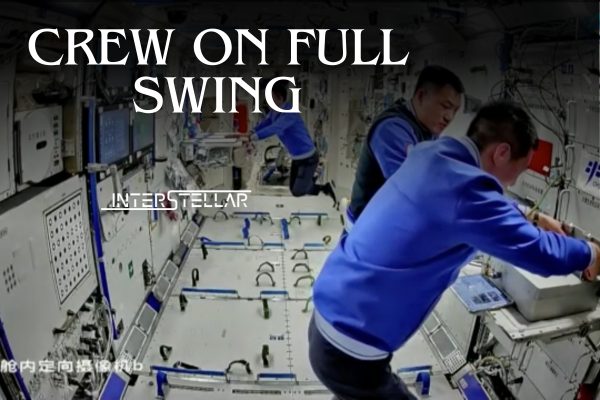Shenzhou-19 Crew Advances Scientific Research Aboard Tiangong Space Station
China’s Shenzhou-19 crew has successfully carried out numerous scientific and technological tasks during their 47-day stay aboard the Tiangong space station. The astronauts continue to make steady progress in their six-month mission, focusing on experiments and maintenance essential for long-term space operations.
Fruit Fly Experiment in Space
One notable experiment involves studying the biological effects and molecular mechanisms of fruit flies in a weak magnetic field. The crew, wearing soft glove covers, transferred and collected fruit flies while maintaining careful precision. They also replaced the gas purification module and managed the transfer and storage of the fruit fly collection tubes.
This research aims to achieve the first complete generation of fruit fly cultivation aboard the space station, contributing to advancements in space biology.
Monitoring Astronaut Health
To track their physical well-being, the crew has been using activity recording devices to monitor their heart rate and activity levels under various conditions. The collected data is securely backed up and sent to the ground for analysis. Regular hearing tests are also performed to safeguard their hearing health throughout the mission.
Weightlessness protection training remains a priority to maintain physical fitness and ensure the astronauts’ ability to perform tasks effectively during prolonged weightlessness.
Upgrades and Maintenance Work
The astronauts have successfully upgraded and tested the material information management system, which functions as a smart warehouse. This system records the location and consumption of various materials in real time, improving resource management aboard the space station.
In addition, the crew completed inspection and maintenance of the regenerative life support system. This critical system recycles essential resources like water, enabling astronauts to sustain long-term missions in orbit.
Daily Routine and Tasks
To maintain a clean and organised workspace, the crew regularly cleans the cabin environment and arranges devices and materials. This ensures a smooth workflow and a habitable environment aboard the station.
Advancing Space Research
The Shenzhou-19 mission, which began on October 30, is led by astronauts Cai Xuzhe, Song Lingdong, and Wang Haoze. Over the six months, the team will conduct 86 space science experiments, covering key fields such as:
- Space life sciences
- Basic microgravity physics
- Space material science
- Aerospace medicine
- New aerospace technologies
These experiments will pave the way for future advancements in space research, benefiting both scientific understanding and technological development.
The Shenzhou-19 crew’s efforts continue to demonstrate China’s growing capabilities in space exploration, setting the foundation for extended human presence in orbit.
With inputs from Reuters





